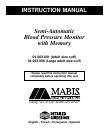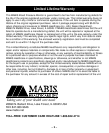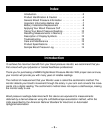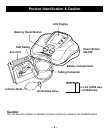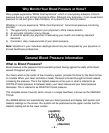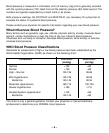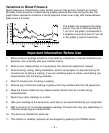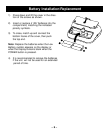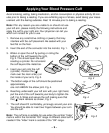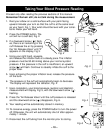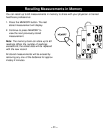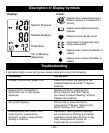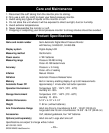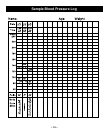
Blood pressure is measured in millimeters (mm) of mercury (Hg) and is generally recorded
with the systolic pressure (120) listed first and the diastolic pressure (80) listed second.The
numbers are typically separated by a slash mark (/) as shown.
Both pressure readings, the SYSTOLIC and DIASTOLIC, are necessary for a physician to
evaluate the status of a patient’s blood pressure.
Please contact your physician for specific information regarding your own blood pressure.
What Influences Blood Pressure?
Many factors such as genetics, age, sex, altitude, physical activity, anxiety, muscular devel-
opment, certain medications or even the time of day can influence blood pressure.
Influences such as sleep or relaxation decrease blood pressure, while anxiety or exercise
increase blood pressure.
WHO Blood Pressure Classifications
Standards for assessment of high or low blood pressure have been established by the
World Health Organization (WHO) as shown on the following chart:
CATEGORY SYSTOLIC DIASTOLIC
(mmHg) (mmHg)
Optimal <120 <80
Normal <130 <85
High – Normal 130-139 85-89
Mild Hypertension 140-159 90-99
Borderline 140-149 90-94
Moderate Hypertension 160-179 100-109
Severe Hypertension ≥180 ≥110
Isolated Systolic Hypertension ≥140 <90
Borderline 140-149 <90
This chart is only a general guideline. Contact your physician or trained healthcare
professional to determine your NORMAL blood pressure.
– 6 –



